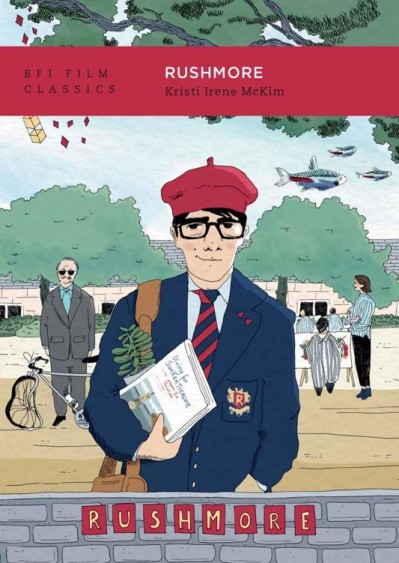Most Commented
Rushmore - Kristi Irene McKim




Description material

epub | 8.51 MB | English | Isbn:9781839024504 | Author: Kristi Irene McKim | Year: 2023
About ebook: Rushmore
Earning critical acclaim and commercial success upon its 1998 release, Rushmore-the sophomore film of American auteur Wes Anderson-quickly gained the status of a cult classic. A melancholic coming-of-age story wrapped in comedy drama, Rushmore focuses on the efforts of Max Fischer (Jason Schwartzman)-a brazen and precocious fifteen-year-old-to find his way. Restless, energetic, struggling, and overcompensating for his insecurities, Max pursues a dizzying range of possible futures, leading him into the orbit of local steel magnate Herman Blume (Bill Murray), elementary school teacher Rosemary Cross (Olivia Williams), and a host of cooperative schoolmates who help him to stage lavish film-derivative plays.
Kristi McKim's compelling study of the film argues that despite the film's titular call for haste and excess (rush/more), it challenges a drive toward perfectionism and celebrates the quiet connections that defy such passion and speed. After establishing Rushmore's history and reception, McKim closely reads Rushmore's energetic musical montages relative to slower moments that introduce tenderness and ambiguity, in a form subtler than Max's desire-built drive or genre-based plays.
Her analysis offers an urgent corrective to what might be perceived as an endearing portrait of privilege that perpetuates a status quo power. Drawing out Rushmore's subtleties that soften, temper, ease, expand, and equalize the film's zeal, she reads the film with a generosity learned from the film itself.
Kristi McKim's compelling study of the film argues that despite the film's titular call for haste and excess (rush/more), it challenges a drive toward perfectionism and celebrates the quiet connections that defy such passion and speed. After establishing Rushmore's history and reception, McKim closely reads Rushmore's energetic musical montages relative to slower moments that introduce tenderness and ambiguity, in a form subtler than Max's desire-built drive or genre-based plays.
Her analysis offers an urgent corrective to what might be perceived as an endearing portrait of privilege that perpetuates a status quo power. Drawing out Rushmore's subtleties that soften, temper, ease, expand, and equalize the film's zeal, she reads the film with a generosity learned from the film itself.
Warning! You are not allowed to view this text.
Warning! You are not allowed to view this text.
Join to our telegram Group
Information
Users of Guests are not allowed to comment this publication.
Users of Guests are not allowed to comment this publication.
Choose Site Language
Recommended news
Commented



![eM Client Pro 9.2.1735 Multilingual [Updated]](https://pikky.net/medium/wXgc.png)






![Movavi Video Editor 24.0.2.0 Multilingual [ Updated]](https://pikky.net/medium/qhrc.png)

